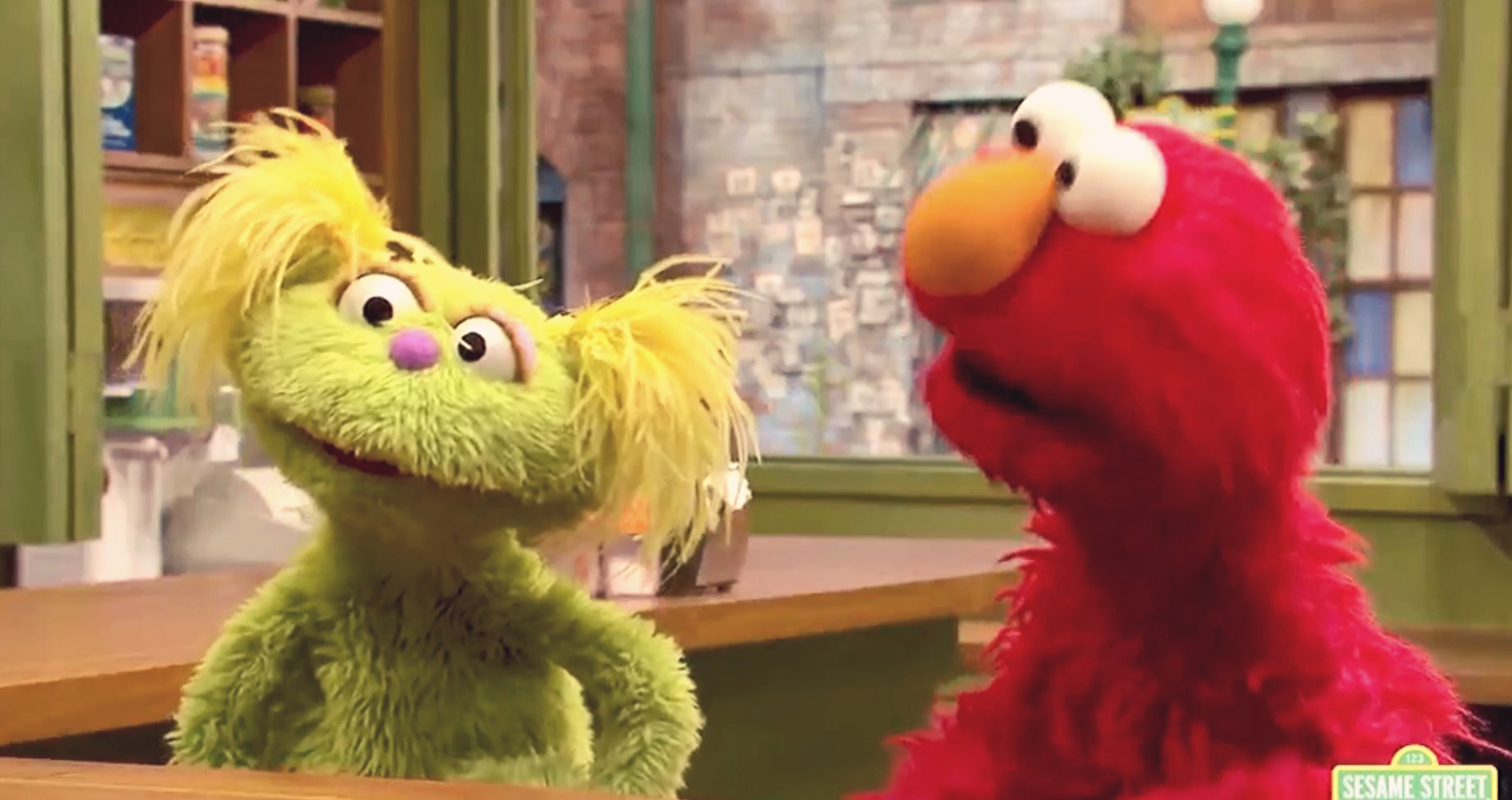Sesame Street has been a trusted source of entertainment and education for fifty years now, and over the last few years, they've introduced new characters that help reflect the world we live in. They've added a homeless character and a character with Autism because they know that representation matters. Now Sesame Street is sharing the story of Karli, a Muppet whose mother has just returned from recovery due to substance abuse and addiction.
Karli was first introduced to fans of the show back in May as a sweet and shy 6-year old who was in foster care because her mother was having a 'hard time.' Now we know that Karli's mother was in recovery. In a statement, Sesame Workshop wrote that there are 5.7 million children under age 11, or one in eight children, living in households with a parent who has a substance abuse disorder in the United States. " The trauma of parental addiction can have lasting impacts on a child’s health and wellbeing, but children can be incredibly resilient; the effects of traumatic experiences can be mitigated with the right support from caring adults like the parents, caregivers, and providers this initiative targets," the statement reads.
“Addiction is often seen as a ‘grown-up’ issue, but it impacts children in ways that aren’t always visible. Having a parent battling addiction can be one of the most isolating and stressful situations young children and their families face,” said Sherrie Westin, President of Social Impact and Philanthropy, Sesame Workshop. “Sesame Street has always been a source of comfort to children during the toughest of times, and our new resources are designed to break down the stigma of parental addiction and help families build hope for the future.”
Sesame Street is using Karli's interactions with friends like Elmo and Abby Cadabby to explain what treatment and recovery is. Sesame Workshop explained on their website that when it comes to substance abuse and addiction of a parent, "Children often think it’s their fault; they feel shame, embarrassment, guilt, and loneliness; they may feel invisible. It takes special effort to start important conversations and answer children’s questions. But parents, teachers, caregivers, and other caring adults can comfort children and guide them through difficult moments. With love and support, the family can cope with the challenges of addiction together."
Read Next: Everything Parents Need To Know About ‘Sesame Street’ Move To HBO Max

